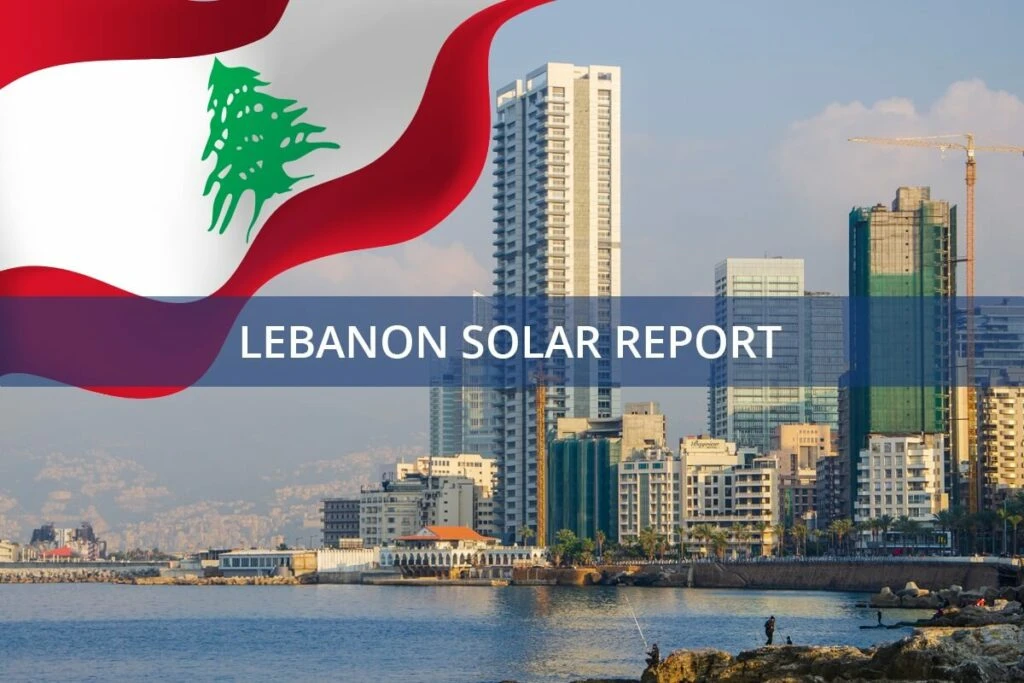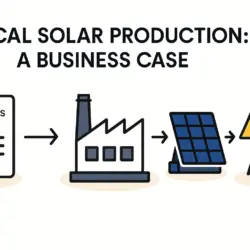Lebanon has officially joined the International Solar Alliance (ISA), a pivotal move in its strategy to advance solar energy development amid a severe energy crisis. The membership, announced on Tuesday, is expected to accelerate Lebanon’s transition to renewable energy and reduce its dependency on fossil fuels.
A Strategic Move Towards Energy Independence
Lebanon’s decision to join the ISA comes at a critical time. The nation has been grappling with a severe energy crisis, marked by frequent power cuts and a heavy reliance on costly, polluting fossil fuels. By aligning with the ISA, Lebanon aims to tap into global expertise, funding, and technological support to expand its solar energy sector.
Launched in 2015, the International Solar Alliance is a coalition of solar-rich countries that works to deploy solar energy technologies, reduce financing costs, and promote solar power’s role in sustainable development. For Lebanon, inclusion in this alliance could significantly advance its efforts to harness solar energy and transition to a more sustainable energy model.
Government and International Cooperation
The Lebanese government views joining the ISA as a strategic move to tackle its chronic energy shortages and promote sustainable development. Minister of Energy and Water Walid Fayad emphasized that the step aligns with Lebanon’s broader goals of diversifying its energy mix and reducing its dependence on fossil fuels.
“This is a landmark decision for Lebanon. Joining the International Solar Alliance will open doors to new opportunities for cooperation, funding, and technology transfer, which are crucial for the development of our renewable energy sector,” said Fayad during the announcement.
With ISA membership, Lebanon gains access to technical assistance, capacity-building programs, and potential joint ventures with other member countries. These collaborations are expected to accelerate the rollout of solar projects across the country.
Potential Impact on Lebanon’s Energy Sector
Lebanon’s energy sector has long been plagued by inefficiency, corruption, and outdated infrastructure. The country’s power generation relies heavily on diesel imports, resulting in high electricity prices and substantial environmental pollution. Integrating solar energy into Lebanon’s energy mix is vital for achieving energy security and sustainability.

Leveraging its abundant sunlight, Lebanon’s shift to solar energy aims to reduce dependence on diesel, cut greenhouse gas emissions, and enhance energy security. The ISA membership is expected to catalyze the development of solar projects in Lebanon by attracting international investment and fostering the growth of a domestic solar industry. This shift could provide a more reliable and affordable energy source for Lebanese citizens, reduce greenhouse gas emissions, and create jobs in the renewable energy sector.
With abundant sunlight year-round, Lebanon’s geographical location offers significant potential for solar energy production. Leveraging this natural resource could allow the country to substantially increase its renewable energy capacity and reduce its reliance on imported fossil fuels.
Challenges and Future Prospects
While joining the ISA is a positive step, Lebanon faces challenges in achieving its renewable energy ambitions. The country’s political instability, economic crisis, and lack of infrastructure investment have historically hindered large-scale energy projects. Additionally, the regulatory framework for renewable energy in Lebanon remains underdeveloped, potentially slowing the implementation of solar projects.
However, the government’s commitment to the ISA and the potential influx of international support could help overcome these obstacles. With the right policies, investments, and international cooperation, Lebanon has the potential to become a regional leader in renewable energy.
A Step Towards Sustainable Development
Lebanon’s entry into the International Solar Alliance is a significant milestone on its journey toward sustainable development. The move reflects the country’s recognition of an urgent need to diversify its energy sources and build a more resilient energy infrastructure.
As Lebanon implements its solar energy projects with ISA support, the benefits are expected to extend well beyond the energy sector. The transition to renewable energy should positively impact public health, the environment, and the economy. A reduced reliance on fossil fuels could lead to lower air pollution, improved health outcomes, and a more stable economic environment.



